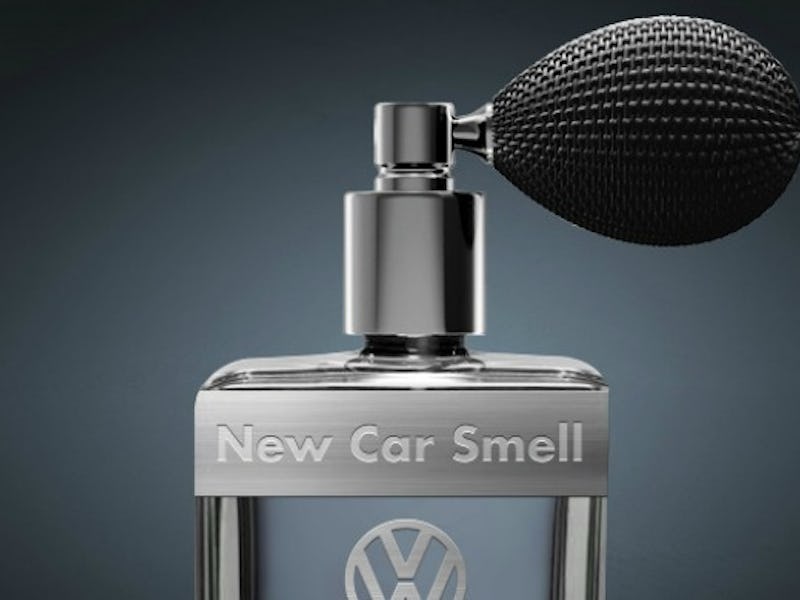Thanks to China, the 'New Car Smell' Could Go the Way of the Dodo

For decades, car manufacturers have been perfecting the “new car smell” — a slight chemical odor created by organic volatile compounds used in flame retardants and plastics. But now it’s threatened with extinction, all because auto makers are turning their attention to a new, potentially gigantic market.
The scent is a nostalgia-inducing favorite among American drivers and a signifier of the value of the unused vehicle, but it’s abhorred in China. According to a recent report in Reuters, many Chinese people are concerned inhaling the fumes will jeopardize their [health](https://www.inverse.com/topic/health). They prefer the car to smell like, well, nothing at all.
In the past, the question of smell may have been a cool cultural detail — but these days, it has real practical weight. Thanks to an increasingly tumultuous car sales market, where Americans keep their cars longer or avoid buying altogether by relying on ride shares, the preferences of foreign buyers, especially the Chinese, really matter. So companies are really listening.
Take Ford. The Dearborn, Michigan-based company is leading the pack in the extinction of the new car smell. It recently hired 18 “golden noses” to sniff out the offending odors at its Nanjing, China, research facility. Equipped with their superior olfaction, the golden noses are smelling every component part of every Ford vehicle sold in every Asian country. If an armrest or air conditioning vent fails the smell test, parts will be sent back to the manufacturer. And the nasal commanders take extreme precautions against infecting the parts themselves, according to Reuters, abstaining from smoking and even avoiding nail polish.
These lengths may sound extreme, but then again, so is China’s aversion to chemical stench. In 2015, the market research company J.D. Power and Associates polled Chinese drivers on their car-buying concerns. Instead of focusing on environmental friendliness or a great engine, respondents said their single biggest concern was “unpleasant interior smell/odor.” A 2016 follow-up poll showed sensory upsets had only increased.
Just as extreme is China’s potential buying power. The central government sees private car ownership as a sign of a thriving Chinese middle class and that ideological support had, for a long time, been showing in sales. For example, 2016 saw a record-breaking 3 million cars sold in China. But this year, things have slowed, pushing Ford and others to entice potential customers with things like odorless interiors.
What’s more, the concerns expressed by Chinese drivers about the hazards of new car smells aren’t totally baseless. As BBC reported last year, are more than 200 chemicals are used in the manufacturing of cars, most of which are unlisted and unregulated by the federal government. Some automakers have said they’ve independently worked to reduce the volatile organic compounds in their vehicles. That’s work — there was a 73 percent reduction in the use of known carcinogen polyvinyl chloride (PVC) in cars between 2006 and 2012 — American consumers must put blind faith in manufacturers.
This divisive odor will go extinct in Asia if the golden noses have anything to say about it, but car companies will likely keep it around for cars manufactured for Americans. Not only is it easier and cheaper to let cars smell, that new car scent is almost as important to Americans as odorless cars are to the Chinese.
Even if Ford trained its golden noses on every one of its cars, scent seekers could just switch to Cadillac, which has imbued its leather seats with a signature blend of fresh-off-the-lot perfume called Nuance since 2003. And if Cadillac is a bit too pricey, you can always get one of the dozens of “new car sprays” sold online. So rest easy. Stars, stripes, and unregulated chemical scents are likely here to stay.